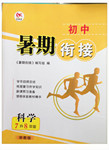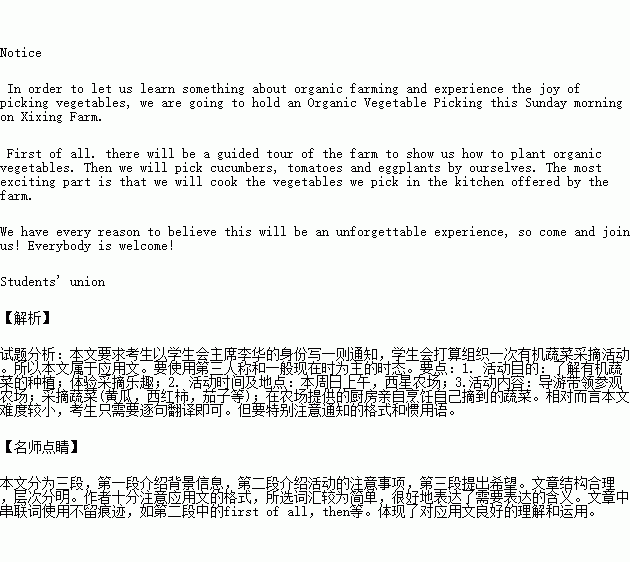��Ŀ����
��������ij����ѧУѧ�������ϯ�����Уѧ���������֯һ���л��߲˲�ժ���������Ӣ��дһ��֪ͨ�����ݰ�����
1. �Ŀ�ģ��˽��л��߲˵���ֲ�������ժ��Ȥ��
2. �ʱ�估�ص㣺���������磬����ũ����
3.����ݣ����δ���ι�ũ������ժ�߲�(�ƹϣ������������ӵ�)����ũ���ṩ�ij�����������Լ�ժ�����߲ˡ�
ע�⣺ 1. ����100���ң�
2. �����ʵ�����ϸ�ڣ���ʹ�������ᡣ
�ο��ʻ㣺��ժ��pick �л�ũҵ��organic farming
Notice
____________________________________________________________________________________________
______________________________________________________
Students�� Union
��ϰ��ϵ�д�
 ���������ν�ϵ�д�
���������ν�ϵ�д�
�����Ŀ

